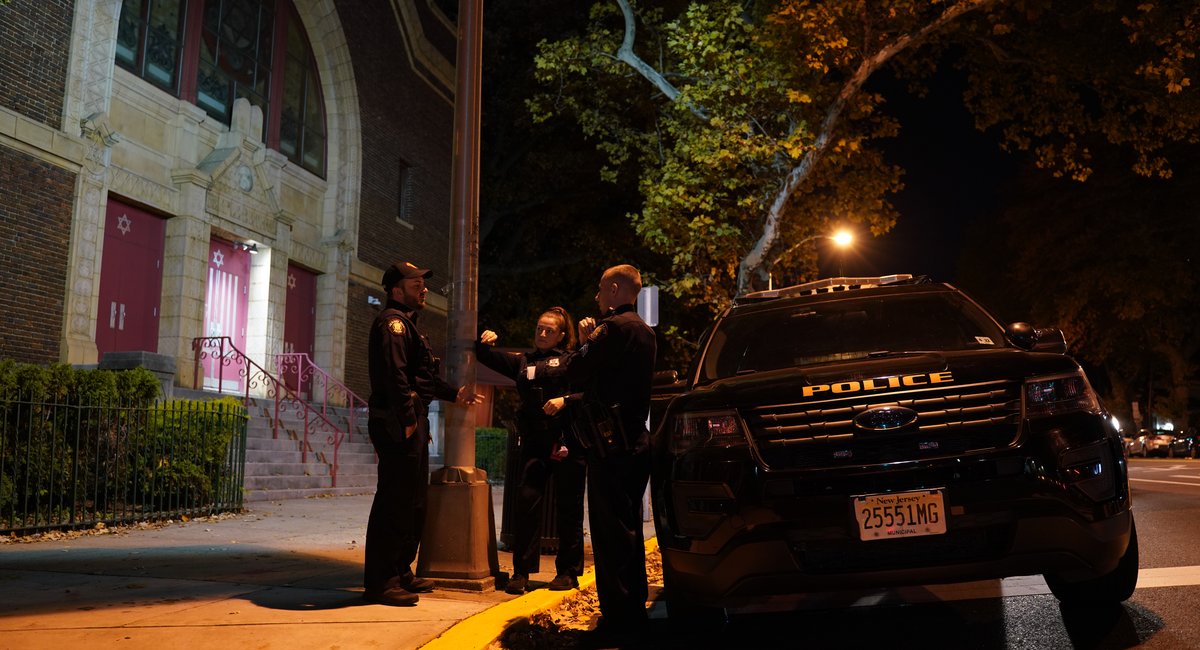Reported bias incidents in New Jersey rose last year by 22%, continuing a trend that has sharply increased since 2016, according to preliminary data released by the attorney general’s office on Thursday.
Anti-Black and anti-Jewish bias continued to be the most common race- and religion-based motivations for reported bias incidents in 2023, the preliminary data shows. Anti-Black bias was cited as a motivation for 1,101 reported bias incidents in 2023, representing 34% of all reported bias motivations for that year. Anti-Jewish bias was cited as a motivation for 708 reported bias incidents in 2023, representing 22% of all reported motivations in 2023.
Anti-Muslim and anti-Arab incidents also rose, including an uptick after Hamas’ attack in October and the start of Israel’s bombardment of Gaza. Anti-Muslim incidents nearly doubled overall from 61 in 2022 to 107 in 2023, and anti-Arab incidents rose from 46 to 78 in the same time, according to a summary of the data from the attorney general’s office.
“What the report shows is, frankly, an alarming rise in bias activity across the board,” Attorney General Matthew Platkin said. “It does not reflect 100% of the bias conduct in our state. And that’s in part because we still have work to do with a lot of communities to encourage reporting because we do take every report seriously.”
New Jersey changed the way it collects data in 2019, which has also contributed to an increase in the number of reported incidents in recent years. Starting that year, it began collecting data on more protected classes of people. It also expanded the definition of “bias incident” to encompass any suspected or confirmed violation of the state’s bias intimidation statute.
With the new categories factored in, state officials counted more bias incidents in 2022 than any time in three decades since it began logging them, and 2023’s preliminary figures exceed that amount.
The number of bias incidents has also doubled over the last three years, according to the data.
“We’ve seen significant increases pretty much across every demographic and that’s concerning,” Platkin said.
Improvements in reporting and community outreach may play a role in the growing numbers, the attorney general’s office said. But it also said political divisiveness, misinformation and hate on social media platforms, and a lingering backlash over 2020’s social justice protests likely play a part.
The new data shows that elementary and secondary schools were the most frequent locations of reported bias incidents in both 2022 and 2023, which Platkin said was very concerning. Residences were the most targeted in 2021, according to the state’s reports.
“We’ve issued guidance throughout the state along with our Department of Education about how to respond when bias incidents occur,” Platkin said. “And I’ve also informed our schools, and this is particularly true for institutions of higher education, that while I’m certainly not looking to go out and hold them accountable, if they fail to create safe environments for their students, they can face liability.”
More incidents were reported in 2023 to the Rutgers Police Department than to any other police force in the state. Police forces, however, cover communities of widely varying sizes.
“The rise in antisemitism and Islamophobia we have seen in recent months only amplifies these trends,” Sundeep Iyer, director of the New Jersey State Division on Civil Rights, said. “There is no place for hate in our state, and we will continue to use every available resource to confront this challenge head-on.”
Platkin’s office has received more than $1 million in federal funding for prevention programs. He is launching a campaign called “No Hate in the Garden State” that he hopes will encourage more reporting of bias incidents and crimes.
Thursday, he also unveiled a new online portal that is expected to update bias incident reporting in real time, and provide details on what kind of incidents, who is being targeted and in which towns they are occurring.
The changes to data collection introduced in 2019 have led the state to mix violent hate crimes with noncriminal acts of hate speech, according to recent reporting by the Asbury Park Press. Brian Levin, director of the Center for the Study of Hate and Extremism at California State University in San Bernardino, told the Press last year that could lead to addressing the issue by using the wrong approach.
New Jersey law defines bias incidents as acts of intimidation motivated by a victim’s perceived or actual race, color, ethnicity, national origin, religion, sexual orientation, disability, gender, gender identity or gender expression. It rises to the level of a crime if it involves criminal behavior, such as harassment, vandalism, assault or other offenses.
But Platkin said he disagrees that tracking bias incidents that do not rise to the level of a crime is causing a problem.
“Bias conduct, even if it’s not a crime or couldn’t be prosecuted, can be a signal that something is going wrong and that we need to, through a variety of channels, intervene,” Platkin said. “So we do take everything seriously. And the worst thing I hear is when people say to me, ‘Oh, I didn’t think that mattered or it’s just sort of the way things are.’”
The attorney general’s office also released its finalized accounting for 2021 and 2022 on Thursday, but previously had preliminary data available to the public.


Leave a Reply